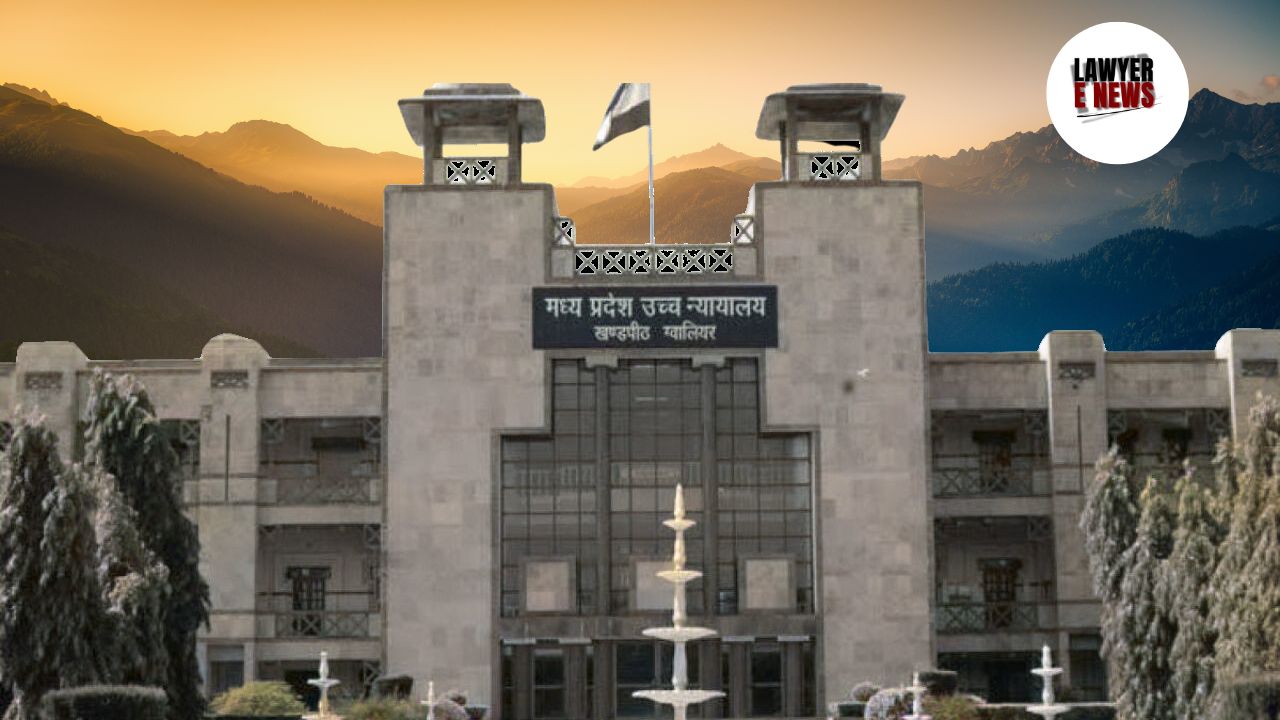-
by Admin
15 February 2026 5:01 PM



Criminal Law Cannot Be Used as a Weapon in Marital Disputes, But Allegations Must Be Tried - Madhya Pradesh High Court dismissed a petition filed under Section 482 of the Code of Criminal Procedure, 1973 (CrPC) seeking quashing of an FIR registered under Sections 420, 406, and 498-A of the Indian Penal Code (IPC), along with Sections 3 & 4 of the Dowry Prohibition Act, 1961. The Court, while rejecting the petition, emphasized that the mere existence of a civil dispute does not render criminal proceedings an abuse of the legal process if the allegations prima facie disclose a cognizable offence.
Justice Vijay Kumar Shukla, while delivering the verdict in Nikhil Rastogi v. The State of Madhya Pradesh & Another, categorically held that "The inherent powers of the High Court under Section 482 CrPC are to be exercised sparingly and in the rarest of rare cases. If prima facie allegations exist, the criminal justice system must take its course."
Court Rejects Husband’s Claim of Malicious Prosecution, Says FIR Discloses Cognizable Offence
The petitioner, Nikhil Rastogi, had sought quashing of FIR No. 148/2022 lodged at Vijay Nagar Police Station, Indore, arguing that the criminal complaint was a retaliatory action following his divorce petition before the Family Court in Saket, New Delhi. He contended that the case was fabricated, civil in nature, and a ploy for financial extortion, alleging that his wife had demanded ₹1 crore as alimony before filing the complaint.
He also asserted that the FIR was filed after an unreasonable delay, considering that the marriage took place in 2017 and the complaint was lodged only in 2022. Additionally, he argued that a sum of $30,000, which was cited as part of a dowry demand, had in fact been transferred to the complainant’s family, contradicting the allegations of misappropriation.
The High Court, however, was unconvinced by these arguments. Noting that the petitioner's father had previously challenged the same FIR in M.Cr.C No. 45474/2022, where prima facie allegations were found against both the father and the petitioner, the Court refused to interfere with the ongoing criminal proceedings.
"The allegations against the petitioner are not purely civil in nature. The FIR specifically alleges demand for dowry, misappropriation of Stridhan, and harassment. These allegations, taken at face value, disclose a cognizable offence. The truthfulness of these claims is a matter for trial and not for determination in a quashing petition under Section 482 CrPC," observed the Court.
"Once Charges Have Been Framed, High Court Should Not Interfere"
The Court took note of the fact that a charge sheet had already been filed and the trial court had rejected the petitioner’s discharge application. Relying on State of Orissa v. Ujjal Kumar Burdhan, (2012) 4 SCC 547 and XYZ v. State of Gujarat, (2019) 10 SCC 337, the judgment reiterated that quashing of FIRs should not be exercised where prima facie material exists and the trial has commenced.
"The law is well settled that once charges have been framed and the trial court has found prima facie material, the High Court should not ordinarily interfere under Section 482 CrPC unless it is demonstrated that the prosecution is manifestly malicious or constitutes an abuse of process," the Court held.
The petitioner attempted to rely on Ganpat Meena v. State of MP and Kailashben Mahendrabhai Patel v. State of Maharashtra to argue that courts have quashed FIRs even after the charge sheet was filed. However, the High Court distinguished these cases and rejected the reliance, stating that "Each case must be examined on its own facts. The power to quash FIRs is to be exercised with caution and only when it is evident that the criminal process is being grossly misused."
High Court Upholds FIR in Light of Bhajan Lal Guidelines
Referring to the landmark decision in State of Haryana v. Bhajan Lal, (1992) Supp (1) SCC 335, the Court reaffirmed that an FIR can only be quashed if it is patently absurd, malicious, or does not disclose a prima facie offence. The Court noted that in this case:
The FIR disclosed specific allegations of dowry harassment, financial coercion, and misappropriation of Stridhan.
The trial court had already framed charges, establishing a prima facie case.
There was no conclusive evidence to suggest mala fide intent or abuse of the legal process at this stage.
"When an FIR discloses allegations of a cognizable offence, the investigation must be allowed to proceed. The Court should be extremely cautious before interfering at the initial stage," the judgment stated.
Conclusion: Criminal Proceedings to Continue, Petition Dismissed
Dismissing the petition, the Madhya Pradesh High Court held that the criminal trial must proceed without any interference and refused to quash the FIR.
"The allegations in the FIR, taken at face value, make out a prima facie case under IPC and the Dowry Prohibition Act. The trial court has already framed charges, and in the absence of compelling reasons to show abuse of process, this Court finds no grounds for interference under Section 482 CrPC," the Court concluded.
With this decision, the High Court has once again reinforced the judicial principle that quashing of FIRs must be done only in the rarest of rare cases and that matrimonial disputes cannot automatically be assumed to be malicious prosecutions without proper trial.
Date of Decision: 23/01/2025
